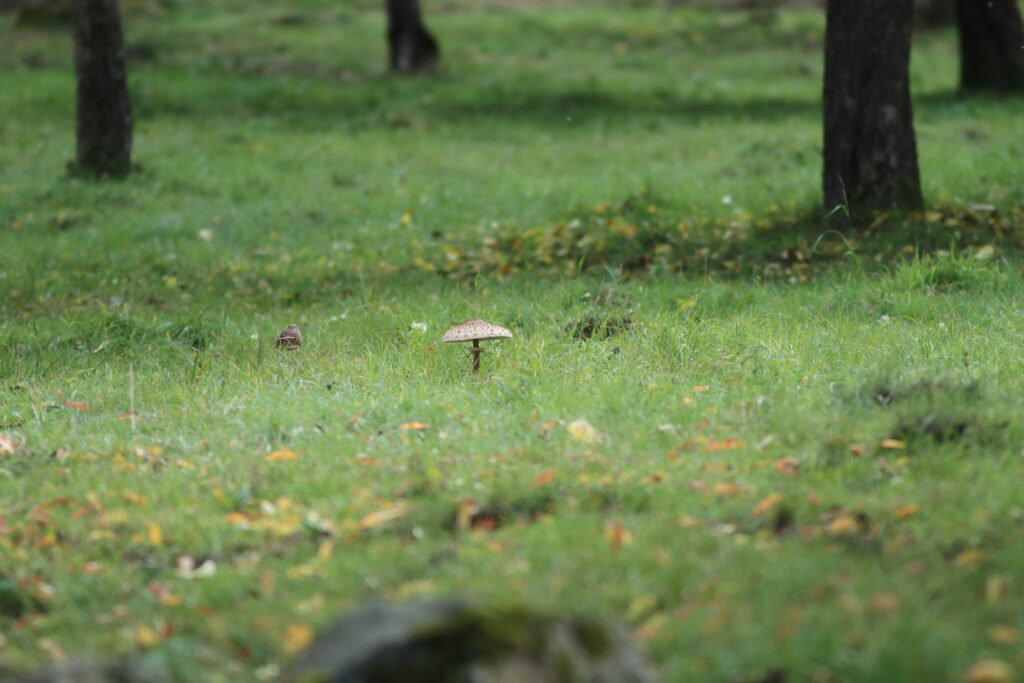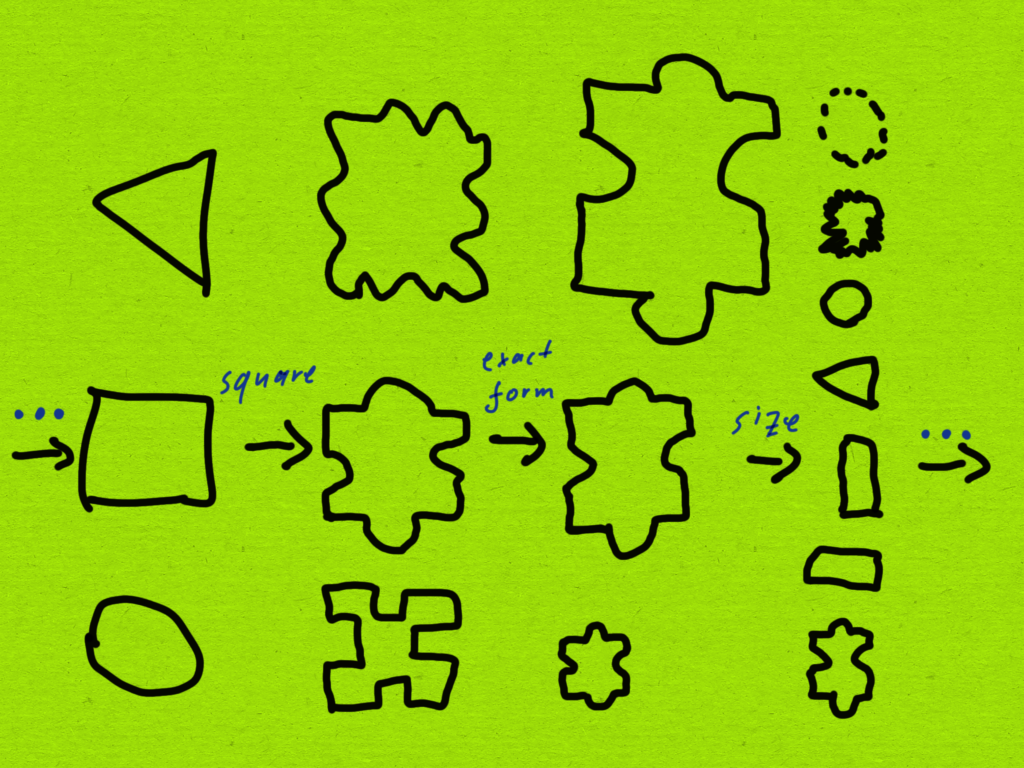This is a guideline to give you something into your hands to become better at identifying your emotions. This guideline can’t and will never be complete or be a perfect match for everyone as everyone experiences their emotions differently. Some may often don’t feel anger but directly switch to sadness so that they assume that they are never angry. However, I try in this guideline to describe the emotions in such a way that the principle behind them becomes clear. In some cases I will provide you with examples that may or may not apply to your life and even if not, you may know the scenarios from movies, series or your culture. As always, I appreciate feedback for further ideas of how to describe the emotions.
The purpose of this post is only to enable you to name your emotions. How to handle them will probably be handled in future posts and already requires a certain amount of self-awareness and self-perception.
As guidance we will use the following image that shows seven core emotions. This is often called “wheel of emotions”. In contrast to many depictions this one includes the emotions of feeling bad. You will realise however later why this emotion is important for us and why we include it here.

The seven core emotions
So, you have this wheel of emotions now with seven cluster or core categories. They of course often all interact with each other and while you are in one cluster at one moment you may jump over to others in just a second, like little chain reactions. Therefore it is not so easy to explain them actually completely separated. But I will try to show the connection between them where possible with respective examples.
Happiness
Let’s start with the core emotion of ‘happy’. It does indicate that you are in a safe and/or predictable and controllable environment. That’s the main contrast to all other emotions on the wheel. All other emotions have basically counterparts in happiness. Just as additional information: The wheel of emotions isn’t necessarily complete and you may would use certain emotions in a different context because you learned them differently and therefore have different associations. That’s all good and fine. It’s a tool to support you and you are welcomed to adapt it to your own needs.
Sadness
The emotion of sadness indicates that we are separated from something that we were used to have in our life or that we actually want to feel connected to but where we notice separation through certain facts. Maybe we lost a loved one, maybe we moved from one flat to another, maybe you had an awesome weekend and need to get back to work, maybe it’s the loss of certain capabilities that we had or that we see reflected in our world but don’t have it, e.g. looking at people that seem to have everything on Instagram or TikTok can make us feel like we should have that, but we don’t have it, we are separated from it. … from the lyrics of the song “Youth” by the musician Daughter we can learn that we may heal sadness through connecting with ourselves and others, through being in the moment and realising what we have and what we are able to do. Depending on the kind of sadness we experience, we may want to learn how to love ourselves, through being accepting of who we are, that we are still human, doing sometimes things that hurt us or others but that this doesn’t make us directly bad humans. The respective emotions in happiness would be “happy –> peaceful” or “happy –> accepted”.
“And if you’re still breathing, you’re the lucky ones.
Lyrics excerpt of “Youth” by Daughter
…
And if you’re still bleeding, you’re the lucky ones.
…
And if you’re in love, then you are the lucky one,”
Disgust
Going on to the emotion of disgust. Disgust is about creating separation. E.g., you may see someone who treats a homeless person badly. Then you probably will feel disgust and judgment towards this person. It becomes you versus them. If you verbally express this and make the homeless person hear it, they may actually feel accepted by you. You create a boundary where the homeless person is within your group and the bad person is outside of the group. The feeling of disgust and expressing it is however a double-edged sword. While you express your strong boundary, you don’t really know if the person you try to protect is actually inside or outside of your boundary. E.g., you may have a broken up with your friend and suddenly other friends and family tell you how bad this friend was and that you are better at it without this friend. This can feel to you like your friends care about you and that you are part of the group but if you are still in love with your friend it can also feel very separating and therefore may fills you with additional sadness. … However, the creation of boundaries is a key point in our social group dynamics. Without disgust we wouldn’t know what to stay away from and each of us would need to make dangerous experiences probably by ourselves. It is basically like fire… it can provide warmth and create life but it can also burn everything down.
Additional note regarding disgust is that you can notice how much people actually use it subconsciously all the time. Whether they identify something as “strange” and therefore add attributes to it that are objectively not there or when someone loves his soccer or basketball club so much and hates every other one. Or maybe it is just the neighbour town that are outside of their social group. The more we become aware of this emotion and see it around us, the more we see how arbitrarily it is actually used and how much many people really live in their concept of social groups. At the same time you may will notice other people that are not expressing disgust all the time and actually don’t live in social hierarchies but see the bigger picture, they see that we have more in common as humans than what separates us from our outside expression.
Anger
Anger… it’s a kind of interesting emotion because we use it often to express that someone is angry at somebody else which means it is always an outside directed emotion but actually in my analysis I came to the conclusion that it indicates that someone or something has overstepped our boundaries. Whether we became passive or active aggressive in the sense of how and where we direct our energy can be seen in all the different variations of anger on the wheel. For example, if someone higher in your social hierarchy, like your boss or parent, oversteps your boundary, you will react maybe more in the direction of frustrated and distant, but if someone who is below you in your social hierarchy oversteps your boundary, you may react more bitter and aggressive or critical. There are so many combinations to think of and it also depends on what you learned regarding what you are allowed to express. Maybe an expressive form of anger was never allowed and therefor you will always feel either frustrated or distant which then may also leads in a second step to sadness.
Fearful
Fearful … this emotion is about increasing your sensitivity to all things around you or the topic that is unknown. You are in an unsafe, unpredictable, unknown scenario. This emotion costs a lot of resources but at the same time is very powerful as it enables you to see new chances, new solutions, new possibilities. We may become also more sensitive regarding our boundaries, means, things that we normally ignore with ease, we become aware of now. Another word to describe this would be hyper-vigilance. However, the longer we stay in fear the more likely we turn from being scared and anxious into weak and threatened. We may start to panic because all this information that we suddenly receive does overwhelm us. … If you want to experience and observe this emotion, you may want to observe how your body behaves when you start drinking coffee and how it behaves when you drink way too much. Caffeine can induces an artificial kind of fear. Depending on how your body reacts to coffee, you can notice how you turn from being hyper aware into being overwhelmed and exhausted.
Bad
Feeling bad is for me a special emotion because often it is not mentioned in other “wheel of emotions” depictions. However, for me it is a key emotion that indicates our level of resources and how efficiently we are able to use it right now. The level and usage of resources determines the likelihood for experiencing the other emotions. E.g., if you are tired or stressed and are low on resources, you don’t have the energy to ignore overstepped boundaries. The overstepping of outer boundaries suddenly feels like a lot more closer attack on you, and as you are low on resources you may will turn to a more outward, active, and expressive form of anger, you may will even make judgmental comments to reinforce your boundary so that others clearly know that they are supposed to leave you alone. … When you are low on resources, the judgemental comment of someone else, that you would normally understand as a joke, suddenly makes you feel deep sadness and separation. … When you are low on resources, even a little bit of fear can be already overwhelming. If you feel bored, you may feel discouraged to do anything. Nothing has meaning and purpose to you. Even if things are important you notice that no matter how much importance or criticality you assign to a task, you can’t get moving. If you feel busy, unwanted context switches may also overstep your boundaries more easily as context switches cost resources and you already try to get through your task with just what you have.
Surprised
Coming to being surprised. Being surprised is an intermediate emotion for me. It is like the first reaction you have to something unexpected, you don’t know for sure yet what your follow up emotion is. It does also energise your body and prepare you basically for the follow up one. It’s only a short time of being overwhelmed and being separated from your logical thinking.
TL;DR: How to identify your emotions
Summary of the core emotions with “one” sentence descriptions which you can ask yourself to identify what you feel:
- Sad –> What do I feel separated from? What do I yearn for?
- Disgust –> What boundaries do I set here? Am I doing it consciously to protect me or someone else or is it a learned behaviour?! How is the dynamic regarding social groups and social hierarchy?
- Angry –> Who or what overstepped my boundary? What boundary is it? A static or dynamic one? Close or far away from my inner core?
- Fearful –> What is unknown to me? What mental or physical danger is in my perception? Is this a legendary fear (see my post Legendary Fears)? A fear we never overcome and now try to avoid it automatically?
- Bad –> What is the level of my resources? How efficiently can or do I apply them right now? Do my resources affect the likelihood of other emotions?
- Surprise –> What drastic change happened? If you can catch this emotion, you may can try to influence in which direction it goes next otherwise your instinct will take over.
- Happy –> Am I able to ignore the dangers of the world right now? Can I avoid the dangers? Can I predict reliably the next moment? Can I save my resources right now? Can I act from a secure and safe position?
A mapping between happy and the other emotions
Now that you should have a good overview over what the core emotions indicate, let’s map some emotions between happiness and the other ones.
If you feel out of resources, this normally means that you feel bad. You can however also feel safe, e.g. you are sick but you are at home and you know that the cold isn’t nice but if you don’t move too much, you can still feel safe as you know that no one depends on you and that you can actually relax. In this case you may feel peaceful and thankful even though you are on low resources.
If you feel hyperaware and sensitive to your environment but you feel safe, this means you actually feel interested and curious or also playful and aroused. You feel energised but safe and capable to handle your reality. Yes, there are things that are unknown but instead to avoid them you actually want to discover them, you are excited of the possibility of failing because you realise that you can only learn and grow from it. Challenges become a thing to overcome, not to avoid. … That’s the contrast to fear.
If someone oversteps your boundary, you normally may would feel anger. But in this case you know that it is not on purpose or with bad intent, that maybe the other person needs to learn because they are not yet aware of what your boundaries are and whether this is a moment where it is okay to overstep one of your boundaries. In this case you feel safe. You are able to express your needs and based on their response you feel accepted, respected and valued, you may even feel trusting, because expressing your needs requires that you trust the other person. Again, your boundaries are overstepped but you feel safe to express your needs, you are able to communicate them in a friendly and connecting way.
You feel the need to express boundaries, normally maybe coming from disgust. This time it can come in a safe situation from feeling powerful, courageous, proud and playful. It is a setting of boundaries not necessarily to separate things but to create structure! We use it to playful learn for unsafe situations. We learn the strength of our words and actions. You know when siblings fight with each other? Often it may be the case that it is their way of learning about their own strengths and what actions are accepted in this social setting. We may feel trusting here because we know that the other person will tell us when we are overstepping too many boundaries and they won’t attack us out of nothing.
If we feel separated but actually safe and don’t see the separation as something that is missing but as extension that is a part of us, we experience happiness. We become peaceful with the thought that we leave the separation behind because we know that an abundance of new possibilities and new connections are waiting for us. We don’t feel like we are losing something but that there are so many other things that we are able to experience so that we become content and interested, we want to see for example how this new job, or new flat will feel like. When we have lost someone we can become proud of them for all that they have given to us and are thankful for it.
Final thoughts
Some final words. When we feel safe, we act out of a place of abundance, we try not to control the resources or energy that come with an emotion but we allow it to move through us. We become aware that things are dynamic and not static. We kind of learn to surf the waves of life (see lyrics of “No Time To Cast Anchor” by Millennium Parade). Sometimes we are in front of the wave, sometimes on it and sometimes behind it. The best thing we can do is do become aware of it and not to attach to one state that we seek or that we think we should be in all the time. If we survived through a horrific storm we need to learn that this storm is not a constant state, that we are allowed to rest when the storm is over.
… or in other words, control is an illusion but this doesn’t mean that we can feel safe from time to time and have trust in whatever we may believe in.
“I won’t blame you for this shit
Lyrics excerpt of “No Time To Cast Anchor” by Millennium Parade:
Because we didn’t start the fire
Why am I getting seasick?
Reality is rougher waters
No time to cast the anchor
Sailing on full steam ahead
No no can’t stop me now”
P.S. I know this text is not always precise and concise written, it is not a text book definition. It is more of how I would try to explain it to you if we were in the same room and I tried to explain you my reality perception and how I understand emotions. I hope it still does resonate with you and that it helps you in your personal growth and life.
Okay, okay, I know, writing about ‘intelligence’ can be easily taken the wrong way. Because the term is so often used in supremacy dreams of . . .
This post is a continuation of “Faith and what it means in my world view”. It breaks faith up into sets of beliefs that in . . .
Originally I wrote this piece in the mid of 2019. It is kind of the foundation for all my thinking in the further posts. (And . . .
Hm… how do I explain this topic in a simple and efficient way without getting lost in multiple rabbit holes and becoming emotional on the . . .
We all have fears. Of some we are very much aware, of others not. Some fears are easier to overcome for us. Some of the . . .








